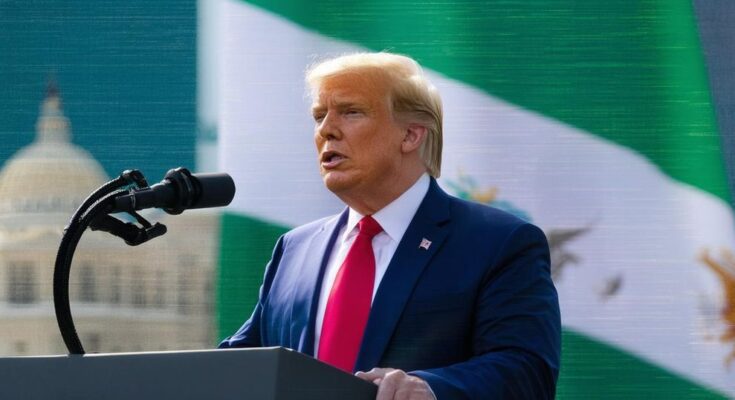Saudi Arabia and the UAE are likely to support Donald Trump’s return to the White House, viewing his administration as more conducive to their regional ambitions. Both countries benefited from Trump’s hardline approach toward Iran and expansive military support. In contrast, Vice President Kamala Harris’s expected diplomatic focus poses a potential threat to their geopolitical strategies, especially regarding arms sales and the Iran nuclear deal. This political preference reflects a broader desire for stability and military assurance amid rising tensions in the Middle East.
As the geopolitical landscape in the Middle East becomes increasingly complex, the Gulf states, particularly Saudi Arabia and the United Arab Emirates (UAE), are strategizing their alliances in light of upcoming U.S. elections. This political maneuvering is predominantly informed by the fluctuations in American foreign policy, particularly regarding relations with Iran and the ongoing crises in Yemen and Sudan. The Gulf states are leaning towards supporting former President Donald Trump, who they believe would offer a more favorable approach to their regional ambitions compared to Vice President Kamala Harris’s anticipated policies. Under Trump’s previous administration, Saudi Arabia and the UAE benefited from extensive U.S. military support, including substantial arms deals and a staunch anti-Iranian stance, both of which significantly bolstered their positions in the region. In contrast, Harris may revitalize diplomatic engagements reminiscent of former President Barack Obama’s tenure, potentially jeopardizing the Gulf states’ strategic interests by restoring the Iran nuclear agreement and prioritizing diplomatic solutions in conflicts that require immediate military responses. Additionally, Trump’s transactional diplomatic style enabled Saudi Crown Prince Mohammed bin Salman to pursue initiatives such as the proposed security and nuclear cooperation pact with the U.S. Consequently, a possible return of Trump could stabilize U.S. relations with Riyadh while providing the Saudi leadership the latitude necessary to address their military and geopolitical interests more aggressively. The UAE, under Crown Prince Mohammed bin Zayed, similarly views a Trump comeback as beneficial, especially following its signing of the Abraham Accords, which linked the UAE closer to Israel. While under Biden’s administration, the United States froze some military transactions due to humanitarian concerns in Yemen, Trump’s approach is expected to lessen scrutiny on such sales, thereby enhancing the UAE’s military capabilities. Ultimately, both Saudi Arabia and the UAE perceive that Trump’s re-election could yield a more aligned and effective partnership that prioritizes their security and economic interests over a more restrained diplomatic strategy expected under a Harris administration. However, such an alignment could intensify competition between the two nations, potentially shifting the balance of power in the region.
The relationship between the United States and the Gulf states, particularly Saudi Arabia and the UAE, has been a focal point of Middle Eastern geopolitics, especially in the context of U.S. elections. With crises erupting in regions like Gaza, Sudan, and Yemen, Gulf states are reassessing their ties with U.S. leadership based on how these leaders may influence their security and regional ambitions. Trump’s prior policies, characterized by strong support for Gulf interests and a hard stance on Iran, contrast sharply with the more diplomatic and multilateral approach anticipated from Harris should she assume the presidency. The stakes are particularly high for both states, with matters such as arms deals, nuclear ambitions, and regional security hanging in the balance.
In conclusion, the Gulf states are likely to favor Donald Trump’s return to the presidency over Kamala Harris due to his previous support for their ambitious regional strategies and the advantageous military dealings that occurred during his administration. The expected diplomatic overhaul under Harris, particularly concerning Iran and military engagements, could undermine their interests, leading to a strategic preference for Trump. However, this alignment may also foster increased rivalry between Saudi Arabia and the UAE as both nations vie for influence within the U.S. framework.
Original Source: foreignpolicy.com




